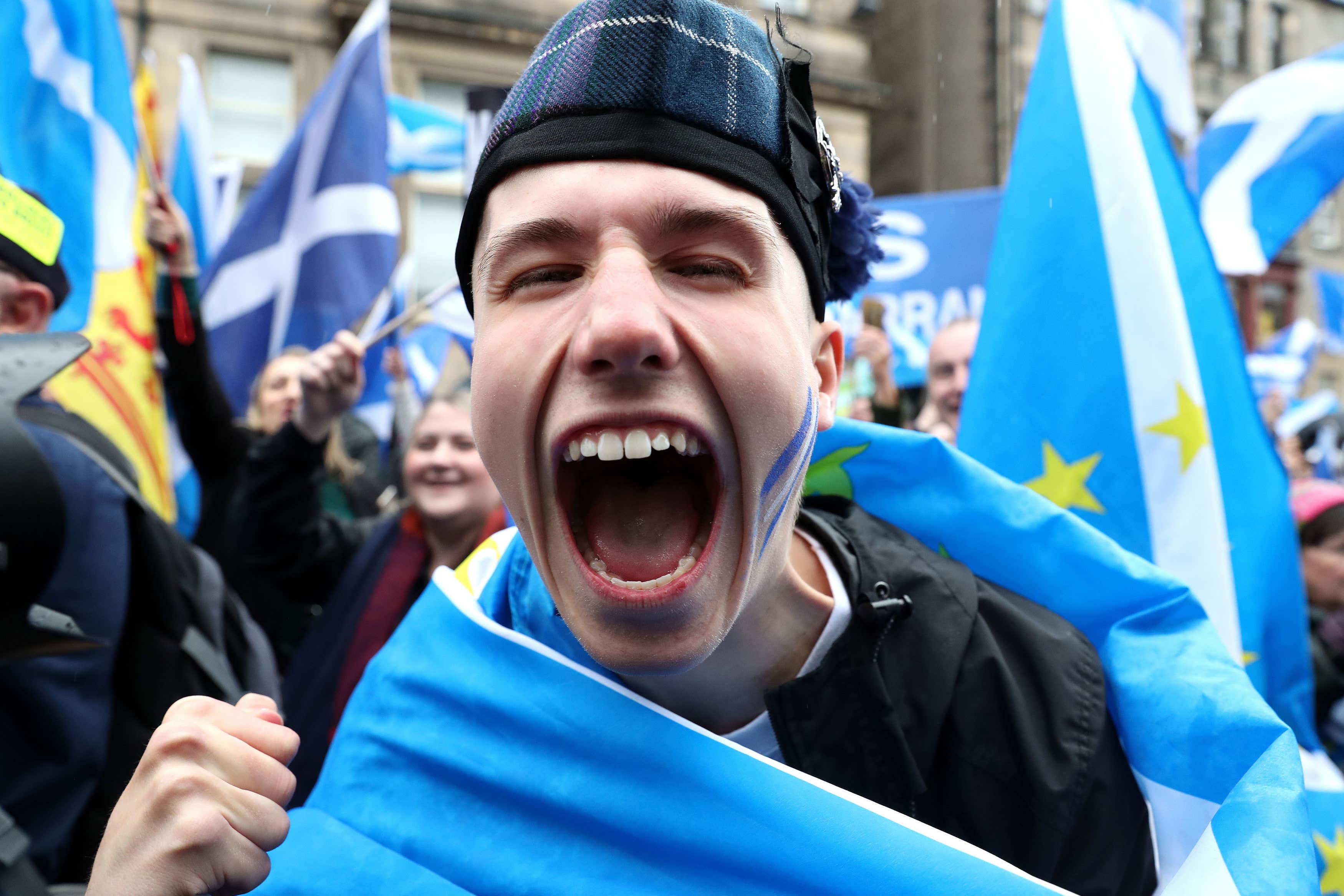Independence not ‘settled will of the Scottish people’, leading academic says
Professor Nicola McEwen was speaking at a fringe event at the SNP conference in Edinburgh.

Your support helps us to tell the story
From reproductive rights to climate change to Big Tech, The Independent is on the ground when the story is developing. Whether it's investigating the financials of Elon Musk's pro-Trump PAC or producing our latest documentary, 'The A Word', which shines a light on the American women fighting for reproductive rights, we know how important it is to parse out the facts from the messaging.
At such a critical moment in US history, we need reporters on the ground. Your donation allows us to keep sending journalists to speak to both sides of the story.
The Independent is trusted by Americans across the entire political spectrum. And unlike many other quality news outlets, we choose not to lock Americans out of our reporting and analysis with paywalls. We believe quality journalism should be available to everyone, paid for by those who can afford it.
Your support makes all the difference.Independence is “not a priority” for some of those Scots who say they would vote for the country to leave the UK, a constitution expert said.
Professor Nicola McEwen, the director of Glasgow University’s Centre for Public Policy, said while polls show support for independence as being higher now than when the referendum was held in 2014, some of that was “a soft support”.
She was speaking at a fringe event staged by the Centre for Public Policy at the SNP conference in Edinburgh – where former Yes Scotland strategist Stephen Noon insisted that independence supporters were “probably at the beginning of a new wave forward”.
This last year has felt like the end of that process that started and led to the 2014 referendum
Prof McEwen’s comments came as the polls indicated support for Scottish independence is higher than support for SNP leader John Swinney’s party, and is only narrowly behind support for staying in the Union.
Polls in both July and August put support for Scotland being independent on 48%, with 52% support for staying in the UK, when those who said they did not know how they would vote were removed, while a poll in June put support for independence at 51%.
Prof McEwen said: “Support for independence does remain high, higher than it was consistently in the 2014 referendum.”
While that is higher than the 45% who voted for independence in 2014, the expert insisted support for this was “not close to being, to borrow a phrase, the settled will of the Scottish people”.
She added that within that “50% or just below” proportion of people who back independence “there is a soft support there”, adding support was “not that solid up to that level and for many in that category it is not a priority”.
And with the SNP now having seen its support fall in July’s General Election, she said: “This last year has felt like the end of that process that started and led to the 2014 referendum.”
However Mr Noon, a former Scottish Government adviser who also served as chief strategist for the Yes Scotland campaign in the run-up to the referendum, argued that independence support was “probably at the beginning of a new wave forward”.
Mr Noon, who is now a research associate at the Centre for Public Policy, likened Scotland’s constitutional journey to a series of waves, referring to devolution referendums held in 1979 and then in 1997 – the latter of which led to the Scottish Parliament being established.
We are probably at the beginning of a new wave forward
He told the audience: “There was the move to the ’79 referendum, which was lost, then a bit of retrenchment. Then there was the move to the ’97 referendum which was won, then a bit of retrenchment.
“Then the move which took us to the independence referendum and beyond and we are probably now, as Nicola suggests, at the end of that wave.
“So what I am trying to suggest is there is a degree of confidence that there is a movement which is not a linear one… but there is a process of forward movement and then retrenchment.
“And we are probably at the beginning of a new wave forward.”
While Mr Noon said this would “not be the same” as previous waves, he added: “The challenge for a party like the SNP is to be ready to ride the wave, no matter what it looks like or where it comes from.”